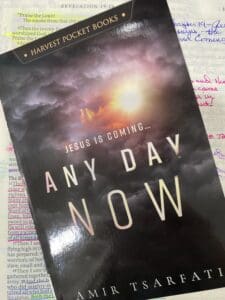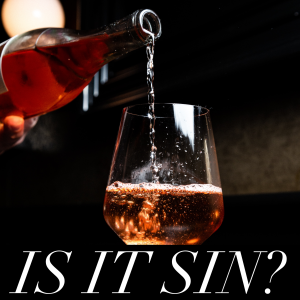What is a Volunteer?
Jesus often used illustrations a gardener could easily understand. In looking at volunteers it seems particularly appropriate to follow His example. So, let’s imagine the life of a certain volunteer plant.
There was once a volunteer plant. Like all volunteer plants, it popped up in an unexpected location. Some animal carried a seed into a side yard and dropped it, and there it grew. When the gardener found it, he had to make some decisions.
Should he move it to the garden where it could grow as he’d intended and receive all the right care? No, the plant had set its roots firmly right where it was; it would not be shifted to a more appropriate location.
Would it be best for him to cut this plant down so that it would not hinder the growth of the plants he had selected specifically for this area? He did not like this idea at all, for it was a nice enough plant and there was some hope that it would bear decent fruit even here, where it wasn’t supposed to be.
So the gardener chose not to cut it down, but to watch and ensure that it did not too greatly hinder the growth of the plants around it. If it proved too much of a danger, if the fruit it might one day produce seemed not to be enough to outweigh the damage it could cause, he would remove it.
So it remained where it had planted itself, though the gardener was never fully happy and kept a cautious eye on it always. He watched as it grew. He watched as it flowered. He watched as it produced fruit. He watched as it died.
The gardener had managed to minimize the damage this volunteer plant did to its companions. He had also harvested the fruit it produced, though this fruit was disappointing when compared to the fruit of similar plants that flourished in the other part of his garden. The gardener was sad as he disposed of its dead remains and considered what this plant could have been, what fruit it would have produced and how much better off both sections of his yard would have been, if it had only put its roots down where it belonged.
The gardener, of course, is God. The volunteer plant is the Christian who is a mere volunteer, one who does not understand the call of God, one who chooses where he will go and how he will serve instead of letting God plant him in the proper spot and serving as God calls him.
A mere volunteer goes where he wishes to go, offers only such assistance as he is inclined to offer, and remains only as long as he wants to stay. He may choose to plant himself in the very place God would have put him, but if his heart is not right or if his chosen place of service is not what God has planned for him, there will be problems. He may be of some benefit in this area where he chooses to plant himself, but he will never be all God wants him to be.
The Christian who plants himself in a location other than the one God has chosen for him will have, and cause, special problems because he is not where God wants him to be—in that place set aside for him where he can do the special work God has already prepared for him to do. (Ephesians 4:16, KJV, from whom the whole body, joined and knit together by what every joint supplies, according to the effective working by which every part does its share, causes growth of the body for the edifying of itself in love.)
He cannot help this alternate location as well as one who is called to it, and it is entirely possible that his presence will eventually prove harmful—to himself, to those around him, perhaps to both. He may manage to live the entirety of his days in this one, wrong spot and he may be happy, but he will never be fulfilled because he will never become all God has ordained him to be. Worse, the body will never be all it is supposed to be, because he is out of place.
When you consider plants, there is really only one difference between a volunteer plant and a weed. The volunteer plant is a cultured plant, one that is designed to serve a purpose. God obviously doesn’t want weeds in His garden. He also doesn’t want His cultivated plants putting their roots down in places not of His choosing.
A volunteer, according to the dictionary, is one who enters into an activity of his own free will. A mere volunteer not only enters of his own free will, but retains the right to free will, the right to say, “You can’t expect me to do that; I’m only a volunteer!” He will work only as hard as he pleases, do only the jobs he chooses to do and stay only as long as it suits him. He persists in thinking that it’s all about him, when in reality it’s all about HIM.
What DOES God Want?
Ephesians 4:16
Under his direction, the whole body is fitted together perfectly. As each part does its own special work, it helps the other parts grow, so that the whole body is healthy and growing and full of love.
Under his direction
These first three words are the key. We must submit to Him as part of His body, completely under His direction. If we won’t be under HIS direction, totally submitted to HIM, why do we call ourselves Christians? To be called a Christian is to be called Christ Like, and Jesus Christ was so completely submitted to His heavenly father that He willingly took the unimaginably horrendous path to the cross.
So, as we are under His direction…
the whole body
the whole body, every part of it, is “fitted together perfectly.”
is fitted together
“is fitted”
This phrase is in the passive voice, which shows that it isn’t the body that is doing the fitting together. The “fitting together” is being done to the body by God. (I Corinthians 12:18, KJV But now hath God set the members every one of them in the body, as it hath pleased Him.)
When we are under His direction, allowing Him to fit us together—letting Him put us where He wants us instead of insisting on putting ourselves where we want to be—we will be fitted together perfectly.
as each part does
Every part of the body has work to do. If a part of the human body refuses to work, the whole body suffers. The same is true of Christ’s body. We are not just here to be. We are here to do. (Ephesians 2:10, KJV, For we are His workmanship, created in Christ Jesus for good works, which God prepared beforehand that we should walk in them.)
its own special work
God gives each of us work to do and we can either do that work or not do it. If we choose to do our work, we are free to choose whether to do it well or poorly. If we choose not to do our work, we are free to choose whether to do nothing or to do someone else’s work instead.
We’ve a world of choices and only one is acceptable—to do that special work that God has set aside specifically for us. To do anything else is to fail Him, the body, and ourselves.
This even holds true when we decide to do ‘extra’ work. While being faithful to our own special work, we might still have enough time that we choose to go help another part of the body as well. This can be a wonderful thing, but if we move against His direction, stepping out on our own accord, the whole body will suffer.
This is not to say a man cannot be active in more than one ministry. If God directs him to serve in multiple areas, God will also orchestrate his service. If, however, he chooses to serve in multiple ministries against God’s direction, he is asking for trouble to visit not only him, but every ministry he touches.
We each have our own special work to do and He expects us to do it and do it with excellence!
it helps the other parts grow
What a gift! Can anything greater be said of a man than that he helps others grow? No. Here is a promise, a result, worth working toward!
And, to consider this from the other side, if this member of Christ’s body chooses not to be under His direction, not to fit in his assigned spot perfectly, not to do the special work God has assigned specifically to him, then he will inevitably hinder the other parts in their growth.
How much better it is to do what we know to do and do it in the way God intends!
so that the whole body is healthy
This is one third of what should be our goal, and is God’s goal, for the body of Christ—that we as the body be healthy and growing and full of love.
Unfortunately, though many individual churches are healthy, this cannot be said of the church as a whole, at least not here in the United States. Many churches have experienced splits and too often church members are not surprised when they learn of other members’ immorality. One can also find church buildings for sale in this nation that are available for purchase not because the churches have grown too large for them, but rather because they’ve died.
and growing
Obviously, if the church as a whole is not healthy, it is also not growing. I was somewhat surprised at one point, though I wasn’t too very shocked, to hear my pastor say in a sermon that the church in the U.S. has not grown since the 1970s. If this is true, something is obviously wrong.
and full of love
This, perhaps, is the saddest thing of all. God is love; you would think that His church would necessarily be full of love, but in how many churches will you find no gossip, nomurmuring, no backbiting, no complaining… If a church is truly full of love, there is no room for these things.
So we, the body, fail the test. We are not fitted together perfectly, with each part doing its own special work. Why?
Because too many of us have never learned the difference between being a volunteer and being a called out, chosen one—the difference between one who casually offers, “I’ll do it,” knowing he has the option of quitting later, and the one who answers the call of his Lord, fully prepared to do anything and everything he is told to do. If the church is to be healthy, to grow and to be full of love, we as individuals must grow up first, moving beyond “I’m only a volunteer!” and into “I am a called out child of God who will fulfill my destiny!”
Ephesians 2:10
For we are God’s masterpiece. He has created us anew in Christ Jesus, so that we can do the good things he planned for us long ago.
We have been created anew in Christ Jesus to do good things. Other translations say “good works.”
When being encouraged to do good works, some people answer by quoting Ephesians 2:8-9. (KJV For by grace you have been saved through faith, and that not of yourselves; it is the gift of God, not of works, lest anyone should boast.) Yes, we are saved by grace, through faith and not by our works; salvation is a gift. Now, if those who quote verses 8 and 9 would only continue to verse 10, they would see why God gave us the gift— “to do the good things he planned for us long ago”. God doesn’t give useless gifts; He gives gifts with a purpose. Knowing this, we realize we are responsible to find out what His plans for us are and to follow through and do what He expects us to do. As Ephesians 5:17 puts it, “Don’t act thoughtlessly, but try to understand what the Lord wants you to do.”
God prepared these works in advance, expecting us to do them. How much clearer can it get? God had a plan in mind, works lined out for each one of us, even before we accepted His gift of salvation. Now it’s our turn. Now it’s time for us to learn what those works are, pull ourselves together, and go get them done.
This is not merely something we can do; it is something we must do if we are to be pleasing to Him. After all, His Word says repeatedly that faith without works is dead. (James 2:17, 20, 26; KJV; Thus also faith by itself, if it does not have works, is dead… But do you want to know, O foolish man, that faith without works is dead?… For as the body without the spirit is dead, so faith without works is dead also.) Too, without faith it is impossible to please God. (Hebrews 11:6, KJV, But without faith it is impossible to please Him…)
Ephesians 4:1
Therefore I, a prisoner for serving the Lord, beg you to lead a life worthy of your calling, for you have been called by God.
The question is not, “Am I called?” but rather, “What is my calling?” Speaking specifically in the realm of the church, we must ask, “To which local church has God called me? To which ministry or ministries within that church has God called me?” We are to seek the answers to these questions and, having found them, lead lives worthy of His calling.
The Word is specific here as it refers to “your calling.” So first we are called with a specific calling. No man should walk in another man’s calling; God expects each man to walk in his own. A man’s flesh may declare that it wants to work in one ministry, but if God has called him to work elsewhere he would be walking in disobedience if he chose to follow his flesh’s lead—this would certainly not be an act of a life that was being lived worthily.
And we must consider carefully what it is to lead a life worthy of one who is called by HIM.
If one were called by the President—that is, if the President of the United States were to call on a man to do something—one assumes that he would not only do it, but do it to the very best of his ability. Who in their right mind would consider giving the President of the United States anything less than work of the highest quality? But we are not called by the President. We are not called by any mere man. Rather, we are called by GOD.
How is it, then, that we too often offer Him second or even third best…or nothing at all? Do we consider Him to be less important than the President? Do we subconsciously take advantage of His quickness to forgive? Do we find that, since we can’t see Him with our physical eyes, it is easier to ignore the fact that He is there and waiting for us to move, waiting for us to do (and do well) what He has called us to do?
When God calls us to a local church, He expects us to be active in that church. (Hebrews 10:25, KJV, …not forsaking the assembling of ourselves together, as is the manner of some, but exhorting one another, and so much the more as you see the Day approaching.) When He calls us to a specific ministry, He expects us to serve actively in that ministry—being where we are supposed to be when we are supposed to be there and doing all we are supposed to do to the best of our ability, with the right heart.
He has given us the great honor of calling us; it is also our honor to live lives worthy of this calling.
What Does God Want?
God wants children who love Him above all else, children who obey Him completely, children who walk with Him—following His lead instead of choosing their own paths and expecting Him to bless them anyway—children who not only know Jesus as Savior, but also as Lord.
God wants children who understand the truth of the words spoken to King Saul, that obedience is better than sacrifice, that He will not condone us doing things our way even if our way does look good in man’s eyes and seems to result in great things for the church.
God wants children who follow in the footsteps of Jesus, the One who did and said, and only did and said, what the Father wanted, who obeyed all the way to the cross and beyond when His Father called.
God wants children who don’t say, “I have decided I want to…,” but say instead, “I have decided to do what God wants me to do.”
God wants
sons and daughters
who understand what it means to be CALLED.
Scriptures Referenced
I Corinthians 12:18
Ephesians 2:8-10
Ephesians 2:10
Ephesians 4:1
Ephesians 4:16
Ephesians 5:17
Hebrews 10:25
Hebrews 11:6
James 2:17, 20, 26
Celebrating Jesus!
Tammy C
(Initially published in booklet format, then as a series of 5 blog posts in 2015.)




